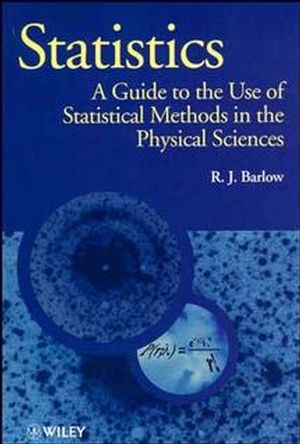Statistics: A Guide to the Use of Statistical Methods in the Physical SciencesISBN: 978-0-471-92295-7
Paperback
240 pages
December 1993
 This is a Print-on-Demand title. It will be printed specifically to fill your order. Please allow an additional 10-15 days delivery time. The book is not returnable.
|
||||||
The Manchester Physics Series General Editors: D. J. Sandiford; F. Mandl; A. C. Phillips Department of Physics and Astronomy, University of Manchester Properties of Matter B. H. Flowers and E. Mendoza Optics Second Edition F. G. Smith and J. H. Thomson Statistical Physics Second Edition F. Mandl Electromagnetism Second Edition I. S. Grant and W. R. Phillips Statistics R. J. Barlow Solid State Physics Second Edition J. R. Hook and H. E. Hall Quantum Mechanics F. Mandl Particle Physics Second Edition B. R. Martin and G. Shaw The Physics of Stars Second Edition A.C. Phillips Computing for Scientists R. J. Barlow and A. R. Barnett Written by a physicist, Statistics is tailored to the needs of physical scientists, containing and explaining all they need to know. It concentrates on parameter estimation, especially the methods of Least Squares and Maximum Likelihood, but other techniques, such as hypothesis testing, Bayesian statistics and non-parametric methods are also included. Intended for reasonably numerate scientists it contains all the basic formulae, their derivations and applications, together with some more advanced ones. Statistics features:
* Comprehensive coverage of the essential techniques physical scientists are likely to need.
* A wealth of examples, and problems with their answers.
* Flexible structure and organisation allows it to be used as a course text and a reference.
* A review of the basics, so that little prior knowledge is required.
* Comprehensive coverage of the essential techniques physical scientists are likely to need.
* A wealth of examples, and problems with their answers.
* Flexible structure and organisation allows it to be used as a course text and a reference.
* A review of the basics, so that little prior knowledge is required.



